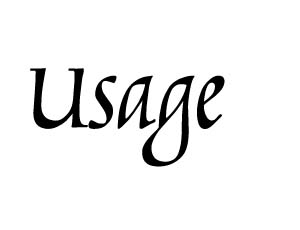In cases where a writer is quoting published writing that in its original form includes parentheses, the same punctuation marks should appear in the quotation:
Two centuries ago William Hazlitt remarked, "The English (it must be
owned) are rather a foul-mouthed nation."
In cases where oral language is being quoted, readers might interpret a
parenthetical expression as being an interpolation--especially since parentheses
are used to signal interpolations in AP newspaper style. Consequently, it's
best to use parentheses only when the words they contain were spoken as
quoted but the sentence is so complicated that special punctuation is needed
to clarify meaning:
"I've always felt--and you can quote me on this--that the ugliest (not
to say most damaging) aspect of the electoral process, aside from the volume
of paid political advertising it generates, is the rancor it encourages
between people of fundamentally similar political views," Professor
Squeegee said.
